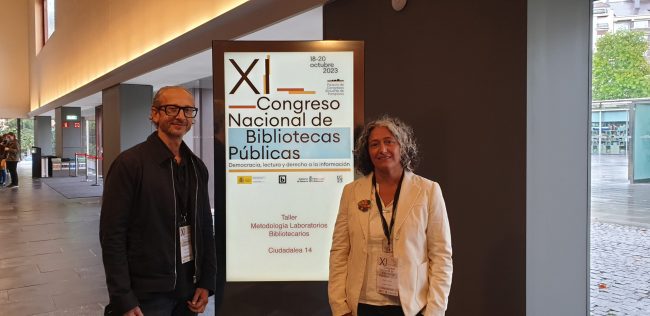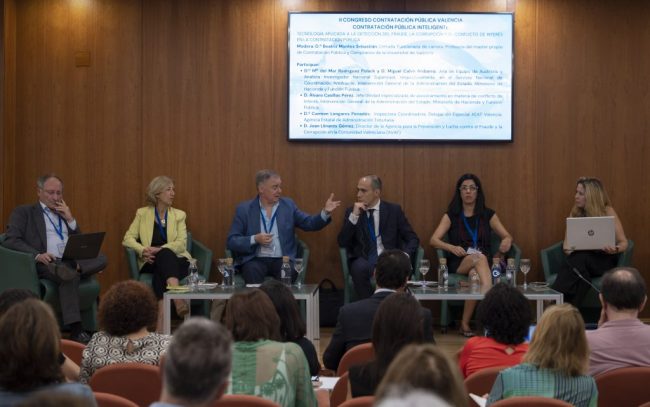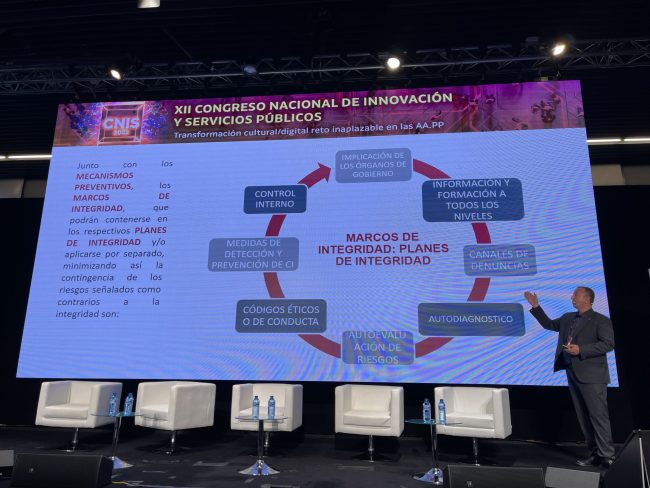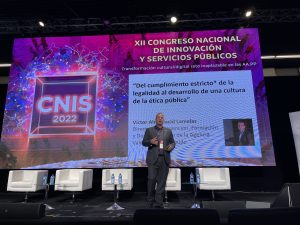#AVAFDocumentation
Pamplona. – October 20, 2023
The Documentation Service of the Valencian Anti-Fraud Agency has presented the lecture The role of libraries as a corruption prevention mechanism at the XI National Congress of Public Libraries held in Pamplona from October 18 to 20, 2023.
The presentation prepared by María Teresa López Ferrer, head of the Documentation and Reports Service and Francisco Xavier Saá Úbeda, head of the Agency’s Documentation Support Bureau, has been selected for inclusion in the book of minutes of the congress.
The work prepared by the AVAF Documentation Service is a reflection on the role that libraries have in the fight against corruption. From the review of the contributions in the library literature on the relationship between democracy and public libraries, it highlights the role of public libraries as structural elements of democracy with a direct role in the fight against corruption.
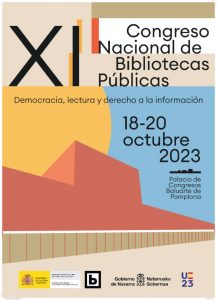 Libraries have played a relevant role in the educational ecosystem and in the formation of the critical spirit of citizens through reading. Currently, information and training needs are more complex than ever, and libraries are a privileged place to acquire knowledge and skills such as digital, economic and legal literacy, necessary to exercise active citizenship and participate in public affairs.
Libraries have played a relevant role in the educational ecosystem and in the formation of the critical spirit of citizens through reading. Currently, information and training needs are more complex than ever, and libraries are a privileged place to acquire knowledge and skills such as digital, economic and legal literacy, necessary to exercise active citizenship and participate in public affairs.
Under the motto “Democracy, reading and the right to information” the biennial congress has been organized by the General Subdirectorate of Library Coordination. The conference has explored, in relation to Europe, the opportunities presented for European public libraries, in particular following the recent alliance between NAPLE, EBLIDA and Public Libraries 2030, as well as policies related to open government and citizen participation in libraries.


